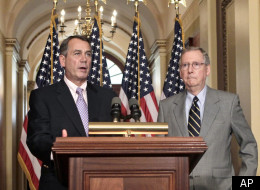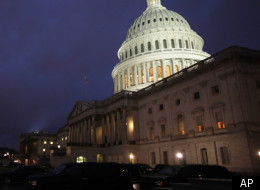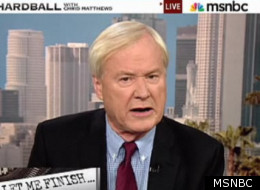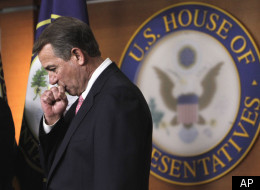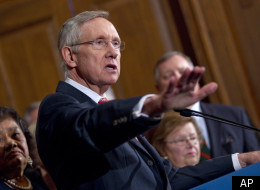Debt Ceiling Deal That Cuts Trillions, Creates 'Super Congress' Announced By Party Leaders
Tuesday, August 2, 2011
Adams provides some context. The US has had three military “build-downs” since World War II — after Korea, after Vietnam and after the Cold War. “With Iraq and Afghanista n winding down, we’re in another build-down ,” he says. He notes that between 1985 and 1996, with the end of the Cold War, military spending declined 36 percent. By comparison , a $1 trillion cut in the next decade would represent a 15 percent decline. “Compared with a $350 billion cut, that’s harder labor, definitely ,” Adams says. “Is it impossible ? No.”
A related question is whether future Congresses would abide by the cuts. The debt-ceiling bill, for one, makes clear that the caps don’t affect emergency supplement al spending. That’s supposed to be used for one-time, temporary expenditur es such as wars; in the 1990s, for instance, when defense caps were in place, Congress still found extra money for the wars in the Balkans. But supplement als give those in favor of defense spending extra flexibilit y — there was some debate in the Iraq and Afghanista n supplement als about whether money was going toward equipment that the Pentagon would’ve bought anyway. “Do they fudge it sometimes? Yeah! This is Washington ,” Adams notes.
Plus, of course, defense caps can always be lifted or modified by future congresses. This happened after the 1985 Gramm-Rudm an-Holling s deficit deal tried to tighten the Pentagon’s belt. And in 1998, as soon as budget surpluses started appearing, defense officials quickly put pressure on Congress to boost defense spending. As Jonathan Allen quips in Politico today, “it's safe to say defense caps and cuts aren't as hard and fast as domestic cuts and caps.” Or, as Korb puts it: “It’s one thing to put caps on Social Security. Congress can enforce that. But to say we’ll be able to dictate what defense spending will look like in 2018 — that’s a lot harder to do. Who knows what the world will look like then?”
About Most Popular
Read the Article at HuffingtonPost Read more...









